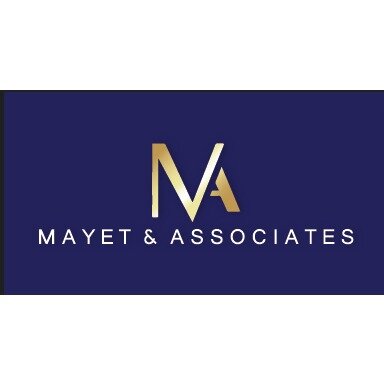Best Patent Lawyers in Lesotho
Share your needs with us, get contacted by law firms.
Free. Takes 2 min.
Or refine your search by selecting a city:
List of the best lawyers in Lesotho
About Patent Law in Lesotho
Patent law in Lesotho is designed to protect the rights of inventors by granting them exclusive rights to their inventions for a fixed period. This encourages innovation by ensuring that inventors can benefit from their creations. The legal framework for patents in Lesotho is governed by specific legislation that aligns with international standards, notably the Patent Cooperation Treaty. Patents typically cover new processes, products, or combinations of materials that offer technological solutions to a problem.
Why You May Need a Lawyer
There are several situations where seeking the assistance of a lawyer specializing in patent law can be beneficial:
- When filing a patent application to ensure compliance with local and international standards.
- If you suspect your patent rights are being infringed, requiring legal action to enforce your rights.
- To manage complex patent portfolios, especially if you own multiple patents or have international patent interests.
- When involved in disputes over patent ownership or validity, needing mediation or litigation support.
- Consulting during contractual agreements regarding the licensing of patents.
Local Laws Overview
Patent legislation in Lesotho operates under the Industrial Property Order of 1989, which is the principal legal document governing patent rights. It sets out the criteria for patentability, which include novelty, inventive steps, and industrial applicability. An application must be submitted to the Registrar General’s office, detailing the invention and its use. Lesotho is a member of the African Regional Intellectual Property Organization (ARIPO), allowing patent protection across several African nations through a single application process.
Frequently Asked Questions
What is a patent?
A patent is a legal right granted for an invention, which allows the patent holder to exclude others from making, using, or selling the invention for a certain period, typically 20 years from the filing date.
Who can apply for a patent in Lesotho?
Any person or corporate entity can apply for a patent, as long as they are the inventor or have acquired rights from the inventor.
What are the criteria for patentability in Lesotho?
Inventions must be new, involve an inventive step, and be industrially applicable to qualify for patent protection in Lesotho.
How long does patent protection last?
Patent protection in Lesotho typically lasts for 20 years from the date of filing, provided annual renewal fees are paid.
Can a patent be renewed in Lesotho?
Yes, patents must be renewed annually by paying the required fees, otherwise, they can lapse.
What should be included in a patent application?
A patent application should include a detailed description of the invention, claims defining the scope of protection sought, drawings if applicable, and information about the inventor and applicant.
How does ARIPO affect patent applications?
ARIPO allows applicants to seek patent protection in multiple African member states through a single filing process, which includes Lesotho.
What happens if my patent rights are infringed?
You may need to seek legal recourse to enforce your rights, which could involve negotiation, mediation, or litigation to stop unauthorized use of your patented invention.
Can patents be transferred or licensed in Lesotho?
Yes, patent rights can be transferred to others or licensed for others to use, often in return for financial compensation.
What's the difference between a patent and other forms of intellectual property?
A patent protects inventions, while trademarks protect brands, copyrights protect creative works, and design rights protect the aesthetic design of objects.
Additional Resources
Individuals seeking more information about patents in Lesotho can contact the Registrar General's Office, as they handle patent applications and registrations. The African Regional Intellectual Property Organization (ARIPO) is also a valuable resource for regional patent protection guidance.
Next Steps
If you require legal assistance with patent matters in Lesotho, consider the following steps:
- Consult with a lawyer who specializes in intellectual property law, particularly patents.
- Gather all relevant documentation about your invention or any dispute you are involved in.
- Plan a strategy with legal counsel to address your needs, whether filing a patent, enforcing rights, or engaging in litigation.
- Stay informed about legal obligations, such as renewal deadlines to maintain patent protection.
Lawzana helps you find the best lawyers and law firms in Lesotho through a curated and pre-screened list of qualified legal professionals. Our platform offers rankings and detailed profiles of attorneys and law firms, allowing you to compare based on practice areas, including Patent, experience, and client feedback.
Each profile includes a description of the firm's areas of practice, client reviews, team members and partners, year of establishment, spoken languages, office locations, contact information, social media presence, and any published articles or resources. Most firms on our platform speak English and are experienced in both local and international legal matters.
Get a quote from top-rated law firms in Lesotho — quickly, securely, and without unnecessary hassle.
Disclaimer:
The information provided on this page is for general informational purposes only and does not constitute legal advice. While we strive to ensure the accuracy and relevance of the content, legal information may change over time, and interpretations of the law can vary. You should always consult with a qualified legal professional for advice specific to your situation.
We disclaim all liability for actions taken or not taken based on the content of this page. If you believe any information is incorrect or outdated, please contact us, and we will review and update it where appropriate.
Browse patent law firms by city in Lesotho
Refine your search by selecting a city.









